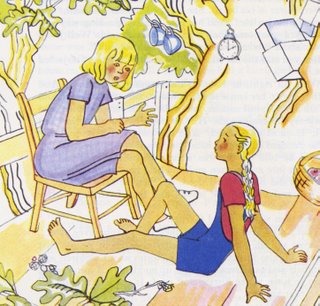The Art of Travel (2002) by Alain de Botton is an education in itself. If you are thinking it is all about how to pack your suitcase, how to breeze through customs, or how to take a cruise and not get seasick, you would be wrong.
Instead, the book is filled with art, literature, personal experience, poetry, architecture, and adventure.
I love a book like this.
Pleasing to read, full of information, and just the right size to carry with you on your travels - whether real or armchair.
Mr. de Botton opens each of the five sections of the book with a personal experience about a place he has visited. Thereby we swoop from Barbados to which he escapes from a dreary British winter to England's Lake District and on to Madrid, Provence, and Amsterdam. Our trip also includes musings on the banality and the sterility of airports and motorway rest stops.
His travel guides, though, are not Baedecker or Fodor but instead the lives and works of, among others, poets William Wordsworth and Charles Baudelaire, artists Edward Hopper and Vincent Van Gogh, author Gustave Flaubert, explorer and naturalist Alexander von Humboldt, and art critic John Ruskin.
Oh, this book, that takes a look at how we travel and why we travel and how perhaps we could get more out of our travels, is a delight. The author examines the disconnect between the promises of the glossy travel brochure and our actual experiences upon arrival at our destination. And how we let someone or something - tour guide or researched tour book - take us to sites that we really have no interest in whereas we might do better to follow our own curiosity. Or how a certain fictional character, Joris-Karl Huysmans' Des Esseintes, found that sitting in a British pub in Paris offers the same atmosphere and experience as a rowdy pub in London without ever having to pack a trunk.
Yes, I can highly recommend The Art of Travel whether you are preparing for a trip around the world or simply settling in to your armchair.







